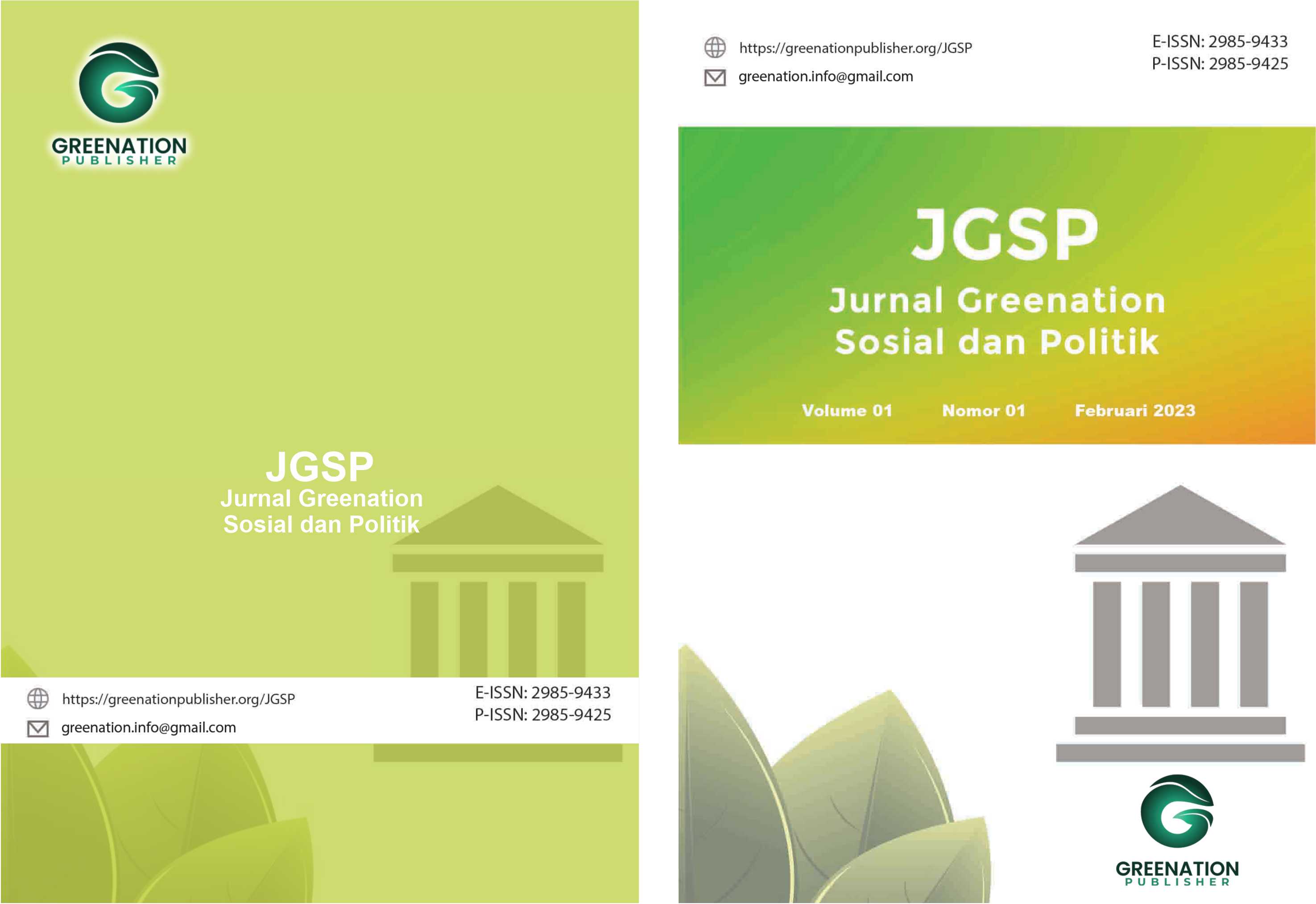Transformation of Counter-Terrorism Strategies Based on Artificial Intelligence and Legal Challenges Regarding the use of Autonomous Weapons
DOI:
https://doi.org/10.38035/jgsp.v3i3.435Keywords:
Artificial Intelligence (AI), Autonomous Weapons System (AWS), counter-terrorism, legal gap, national securityAbstract
The development of Artificial Intelligence (AI) has transformed various sectors, including national security and counter-terrorism strategies. The utilization of AI, particularly through intelligent surveillance systems and autonomous weapons systems (AWS), strengthens the state's capability to detect, analyze, and respond to potential terrorist threats swiftly and efficiently. However, the presence of this technology does not escape legal challenges, particularly concerning regulatory gaps and accountability for the use of autonomous weapons that can operate without human intervention. This study uses a normative juridical approach to examine the transformation of counter-terrorism strategies based on AI, as well as to analyze the absence of legal norms governing the use of AWS in Indonesia and within the context of international law. The findings show that national legal instruments such as Law No. 5 of 2018 on the Eradication of Criminal Acts of Terrorism and Law No. 3 of 2002 on State Defense are not yet adequate to address the new challenges posed by AI. On the other hand, international forums such as the Convention on Certain Conventional Weapons (UN CCW) are still debating the ethical and legal boundaries of AWS without producing a binding consensus. This research recommends the establishment of a new legal framework that is responsive to technological developments, ensuring the protection of human rights and the principle of accountability in the use of AI for security purposes. Without clear regulations, this transformation has the potential to result in abuse of power and serious violations of civil rights.
References
Astuti, S. A. (2024). Literasi Kemanfaatan Teknologi terhadap Cyber Terrorism di Era Disrupsi dengan AI (Artificial Intelligence). Indonesian Journal of Criminal Law and Criminology (IJCLC), 5(3).
Farid, I. R. (2023). Pemanfaatan Artificial Intelligence Dalam Pertahanan Siber. Nusantara: Jurnal Ilmu Pengetahuan Sosial, 10(2), 779-788.
Gaire, U. S. (2023). Application of artificial intelligence in the military: An overview. Unity Journal, 4(01), 161-174.
Lush, E. (2023). The view through a different lens: Increasing respect for international humanitarian law through the use of the international human rights law framework. Journal of International Humanitarian Legal Studies, 14(1), 95-129.
Majid, A. (2021). Studi tentang Wacana Hukum Responsif dalam Politik Hukum Nasional di Era Reformasi. Dinamika Hukum, 12(1).
Mania, K. (2023). Legal technology: assessment of the legal tech industry’s potential. Journal of the Knowledge Economy, 14(2), 595-619.
Najwa, F. R. (2024). Analisis Hukum Terhadap Tantangan Keamanan Siber: Studi Kasus Penegakan Hukum Siber di Indonesia. AL-BAHTS: Jurnal Ilmu Sosial, Politik, dan Hukum, 2(1), 8-16.
Nirmala, A. Z. (2024). Pre-Crime dan Teknologi: Mengantisipasi Terorisme Sebelum Terjadi di Indonesia. Jurnal Kompilasi Hukum, 9(2), 169-177.
Paamsyah, J. I. (2023). Upaya Penanggulangan Tindak Pidana Terorisme Di Indonesia. Innovative: Journal Of Social Science Research, 3(6), 2973-2985.
Pramono, B. (2021). Law Enforcement of Indonesian National Army (TNI) Soldiers with a Progressive Legal Approach. Hang Tuah Law Journal, 30-42.
Puslatpur, P. P. (2023). Kedudukan Dan Fungsi Komponen Cadangan Dalam Memperkuat Sistem Pertahanan Negara Ditinjau Dari Uu Nomor 3 Tahun 2002 Tentang Pertahanan Negara. LEX PRIVATUM, 11(5).
Putra, M. A. (2024). INTEGRASI KECERDASAN BUATAN DALAM BERBAGAI SEKTOR: DAMPAK, PELUANG, DAN TANTANGAN. Jurnal Cakrawala Ilmiah, 3(12), 3831-3838.
Respati, A. A. (2024). Reformulasi UU ITE terhadap Artificial Intelligence Dibandingkan dengan Uni Eropa dan China AI Act Regulation. JURNAL USM LAW REVIEW, 7(3), 1737-1758.
Riani, E. A. (2025). IMPLIKASI ETIS PENGGUNAAN KECERDASAN BUATAN DALAM SISTEM SENJATA OTONOM: TANTANGAN DAN TANGGUNG JAWAB MORAL DI ERA PERANG MODERN. NUSANTARA: Jurnal Ilmu Pengetahuan Sosial, 12(1), 256-262.
Rifky, S. K. (2024). Artificial Intelligence: Teori dan Penerapan AI di Berbagai Bidang. Jambi: PT. Sonpedia Publishing Indonesia.
Sarjito, A. (2023). Sinkronisasi Kebijakan Pertahanan dalam Operasi Militer dengan Hak Asasi Manusia. Journal of Governance and Policy Innovation, 3(2), 17-41.
Sianturi, D. M. (2023). Tantangan Penggunaan Artificial Intelligence Dalam Hybrid Warfare. Innovative: Journal Of Social Science Research, 3(5), 9984-9996.
Sidauruk, S. M. (2019). Penggunaan Autonomous Weapons System Dalam Konflik Bersenjata Internasional menurut Hukum Humaniter Internasional. Diponegoro Law Journal, 8(2), 1489-1505.
Sumarno, I. A. (2025). Manajemen Pertahanan Modern: Tantangan Modernisasi Militer dan Integrasi AI. Bandung: Indonesia Emas Group.
Wahyudi, B. R. (2025). Tantangan Penegakan Hukum terhadap Kejahatan Berbasis Teknologi AI. Innovative: Journal Of Social Science Research, 5(1), 3436-3450.
Zhang, C. &. (2021). Study on artificial intelligence: The state of the art and future prospects. Journal of Industrial Information Integration, 23, 100224.
Downloads
Published
How to Cite
Issue
Section
License
Copyright (c) 2025 Deden Rahmad Hidayat, Joko Setiono, Supardi Hamid

This work is licensed under a Creative Commons Attribution 4.0 International License.
Hak cipta :
Penulis yang mempublikasikan manuskripnya di jurnal ini menyetujui ketentuan berikut:
- Hak cipta pada setiap artikel adalah milik penulis.
- Penulis mengakui bahwa Jurnal Greenation Sosial dan Politik (JGSP) berhak menjadi yang pertama menerbitkan dengan lisensi Creative Commons Attribution 4.0 International (Attribution 4.0 International CC BY 4.0) .
- Penulis dapat mengirimkan artikel secara terpisah, mengatur distribusi non-eksklusif manuskrip yang telah diterbitkan dalam jurnal ini ke versi lain (misalnya, dikirim ke repositori institusi penulis, publikasi ke dalam buku, dll.), dengan mengakui bahwa manuskrip telah diterbitkan pertama kali di JGSP.
























